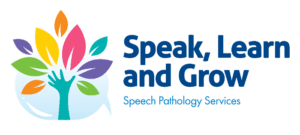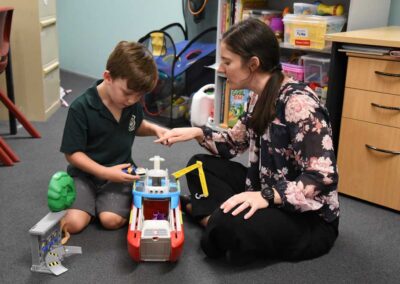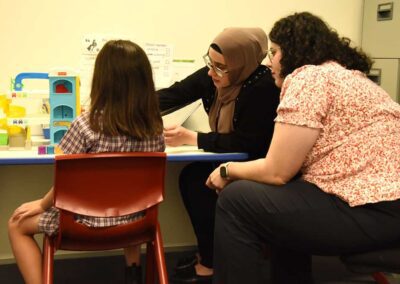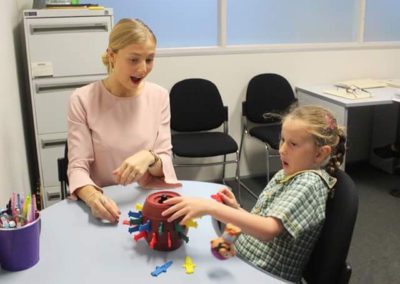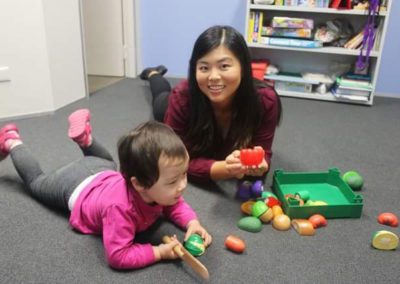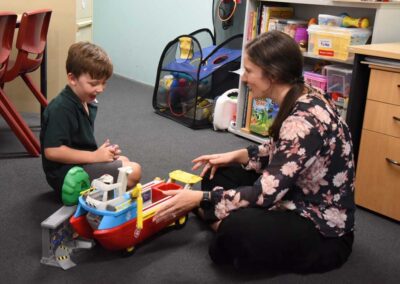
Speech therapy is a vital resource for individuals who experience difficulties with communication or swallowing. Speech therapy can provide tailored support. At the heart of this therapeutic process are speech therapy goals. But what exactly are these goals and why are they crucial for effective treatment?
What Are Speech Therapy Goals?
Speech therapy goals are specific, measurable objectives that outline what a patient aims to achieve during their therapy sessions. These goals can vary widely depending on the individual’s needs, age, and specific challenges. Common types of goals may include:
- Articulation Goals: Improving the clarity of speech sounds. For example, a child might aim to correctly produce the “s” and “sh” sounds in conversational speech.
- Language Goals: Enhancing vocabulary, sentence structure, and comprehension. An example might be increasing a child’s ability to use complete sentences when describing an event.
- Fluency Goals: Addressing stuttering or other fluency issues. A goal could involve using smoother speech in a specific context, such as during storytelling.
- Social Communication Goals: Improving pragmatic language skills, such as turn-taking in conversation or understanding nonverbal cues.
- Voice Goals: Modifying pitch, volume, or quality of voice. This may include strategies for reducing vocal strain or improving resonance.
- Swallowing Goals: For individuals with dysphagia, goals might focus on safe swallowing techniques or improving the ability to eat certain textures of food.
Why Are Speech Therapy Goals Important?
- Direction and Focus
Speech therapy goals provide a clear direction for both the therapist and the client. They help to identify specific areas of focus, ensuring that sessions are productive and targeted. This structured approach allows therapists to create personalized treatment plans that address individual needs.
- Measurable Progress
Having concrete goals allows for the measurement of progress over time. By regularly assessing whether a patient is meeting their goals, therapists can adjust techniques or strategies as needed. This ongoing evaluation is crucial for maintaining motivation and ensuring effective therapy.
- Empowerment and Motivation
Clear goals empower patients by giving them something to work toward. When individuals can see their progress, whether it’s mastering a new sound or participating more confidently in conversations, it boosts their motivation and self-esteem. Celebrating small achievements along the way reinforces their efforts and encourages continued participation.
- Facilitating Communication
For individuals with communication difficulties, having specific goals can enhance their ability to express themselves. Goals that focus on functional communication skills, such as making requests or asking questions, can significantly improve a person’s interactions with peers, family, and the community.
- Collaborative Approach
 Goals foster collaboration between therapists, patients, and families. Involving family members in the goal-setting process can enhance support at home and create a cohesive approach to therapy. When everyone understands the goals, they can work together to reinforce skills in everyday situations.
Goals foster collaboration between therapists, patients, and families. Involving family members in the goal-setting process can enhance support at home and create a cohesive approach to therapy. When everyone understands the goals, they can work together to reinforce skills in everyday situations.
- Tailored Therapy
Every individual is unique, and speech therapy goals reflect this diversity. By setting personalized objectives, therapists can cater to the specific challenges and strengths of each patient. This individualized approach maximizes the effectiveness of therapy.
Conclusion
Speech therapy goals are essential components of effective treatment for communication and swallowing disorders. They provide direction, facilitate measurable progress, and empower individuals on their journey to improve communication skills. By establishing clear and personalized objectives, speech therapy not only enhances the therapeutic process but also significantly impacts the lives of those facing communication challenges. Whether you are a parent navigating your child’s speech therapy or an individual seeking support, understanding the importance of these goals can help you engage fully in the process and celebrate every step of progress along the way.
